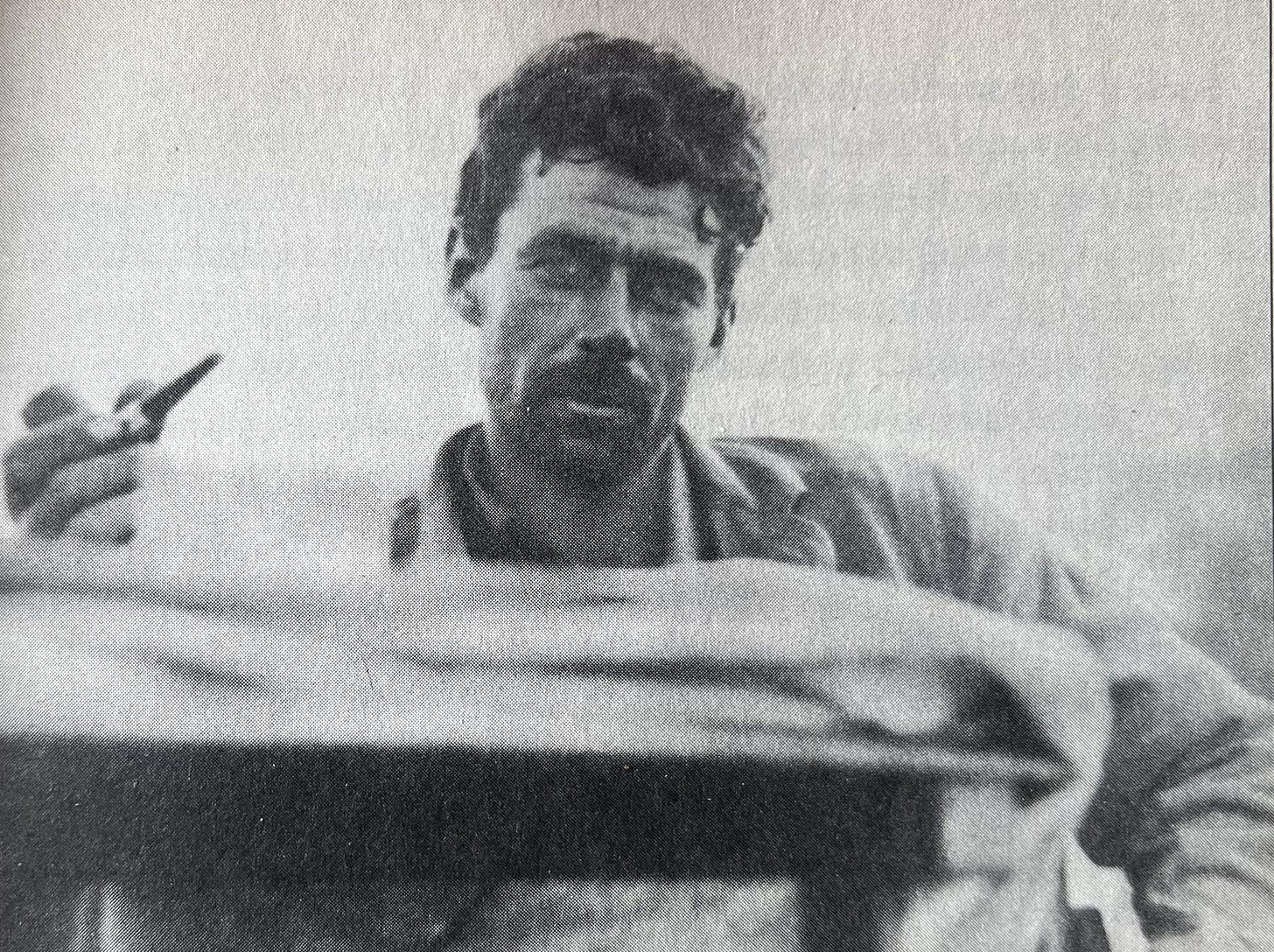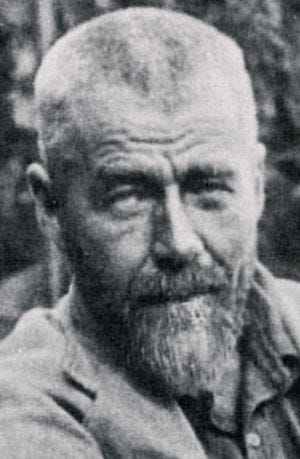If men were as much men as lizards are lizards they’d be worth looking at.
- DH Lawrence
SAFARI, def’n: a journey or expedition, especially on-foot.
I recently read with great relish Brian Herne’s fascinating White Hunters - The Golden Age of African Safaris. I was immediately impressed by the potency of this book in illuminating just how excruciatingly dull most lives had become during the latter half of the 20th Century following the second great war, in comparison to what lies on these pages. The book chronicles the lives of those who justified their existence hunting the great game species of Africa. Made hunting their livelihood as our ancestors had, beginning at the close of the 19th Century. No man in that book left so great an impression on me as Alan Lindsay Black, the fella about whom the least words were written, in Herne’s book and elsewhwere. (In fact, even the chapter in Herne bearing his name is mostly about a client of Black’s, Paul Rainey, wealthy American businessman, philanthropist, hunter, and photographer.) The dearth of meat on Black compaired to others was not because he was the least noteworthy of the lot, but rather, as is immediately intuited from what little is there, because the very nature of the man, that which made him most worth knowing, rendered him at the same time the least-knowable of them all.
It is widely agreed that Alan Black was the man to whom the iconic appellation “White Hunter” (variously Great White Hunter in popular American culture) was first applied. In his case, to differentiate him in-context early-on from the dark-pigmented native hunters with whom he was associating. “That white hunter over there… He was the man from whom by extension then the expression was derived and fell into general usage to describe them all, and arguably representing the best blueprint of the type. He became one of the most sought-out in a profession with such appallingly high premature mortality rates back in his day that, just as had applied with the mountainmen of a century previous, you were guaranteed legend status just by surviving into middle-age. Black was legend well before middle-age, and he was to survive well beyond it. I am haunted by the idea of this man, in the same way as I am by the spectacle of the Comanche. You’d think there would be plenty written about him based on the above alone, but alas there is not. So i decided to post this, which is merely a regurgitation of what little record there is, in order to help keep the memory alive of someone whom in my eyes seems far more worth remembering than a great many whom we so copiously celebrate to stale redundancy in modern times, any multitude of mere pop-culture icons, for instance, whose lives aside from some singular talent for pretending they are someone else for the screen perhaps or for belching out some noxiously adhesive ditty set to simple refrain sticking unwelcome in the ear like hot gum to the sole of a shoe, are little more than a blueprint for dissolute perversion. I post this here to offer up a blueprint of man, then, of a type, to suggest to however few might be interested (and i know of a few on here): take-note! Should you choose to read-on, you will gain a picture of why so little is known of a man who seems to have managed to live so large and so well and, most importantly, so authentically. So true-to-type.
Black was born in 1881, a Scot it is to be inferred (British at any rate, as so many of these men were) and significantly moneyed. He was already in Africa by the year 1900 - British East and Sudan. He seems to have cut his teeth as a meat-hunter on this frontier, both for himself and others. He stood five-feet-and-ten, neither particularly tall nor short, and was of powerful yet lean build. One imagines an Airedale terrier of of a man. His eyes were a striking blue and he became so deeply tanned that some wondered if “Black” was an alias. Yet the skin beyond the exposed portions of face and hands betrayed him, maintaining lily-white. He was known more than any of his contemporaries for being a lone-hunter when on his own clock, venturing forth over vast spaces on his perilous work without the aid of even a single native guide. Notable contemporaries of his commented that he looked as though he were carved from a block of granite and was similarly communicative. Yet it was said that he was universally liked. He was an expert horseman and keen naturalist. He was as good with a bow as with a rifle, though he later became disgusted by bow-hunting and its propensity to wound, to inflict suffering, being instrumental in having it outlawed in African hunting countries. He was similarly averse to largescale slaughter of wildlife, and was an early voice for conservation. Early on in his career he experienced near-death-by-elephant, knocked unconscious with arm and ribs broken in the company of an early mentor, equally legendary and more thoroughly documented hunter, the Scotsman R.J. Cuninghame.
Alan Black is reputed to have made a fortune additional to the one he was born into, as did notable others during his era in Africa, through ivory-hunting.* Yet he seems to have had little day-to-day use for money. (It seems to me there is no-one less convinced of the stuff than the people who have had it and never truly needed it. There is no-one more convinced of it as the answer-to-everything than those who have never had it.) He lived in an abandoned and derelict stone barn with a corrugated steel roof, through the big doors of which he would drive his hunting-car, clearing room by removing his kit onto the floor of the interior so as to make his bed in the vehicle’s rear portion. He was shy and naturally retiring, never to be seen for instance at the bar of the Nairobi’s Norfolk Hotel where his boisterous besotted contemporaries could be seen rousing-it up in their offtime. The only times he made a display of his wealth was during rare ship-voyages back to the UK when he would book an entire passageway of cabins so as to reduce his chances of running into anyone, or similarly when lodging abroad in some hotel, when he would book the entire floor. Following the smoking of his pipe out on the deck of a ship, he would pick up all his matches so that his presence might not be spoored. I have come across no mention of a wife.
By 1924, Black was already considered a master veteran-of-the-hunt, one of the best there ever was. He was much-sought after by those pursuing safaris to be their guide, or rather Professional Hunter as they are known in Africa. (“PH” in today’s age of the acronym, our ass-laziness having infected the very root of our tongues now, which can no longer be humanely expected the exertion of too many full-words.) It was said you were very lucky to be able to book him, that his salary was commensurate with that of the President of the United States of America at the time, yet worth it to those who could shell-out. Clearly, his lifestyle alone would have left him the luxury of picking and choosing for whom and when he was going to work, so little use did he have for material comforts.
Alan Black died in 1963 at the age of 82. He had retired from active work as a hunter more than 20 years prior to this, his last safari being with the Duke of Gloucester in Abyssinia. He took up big game fishing. During this period, he was tracked down by a reporter, her first question to him being, what is your opinion of modern hunting, Mr Black? To which he grunted, there isn't any. By the terms and conditions he had known, there was not. It was over.
It is a relief, a comfort and an inspiration to me to know such men as Alan Black existed, and doubtless still do, here and there, whether or not they are getting the same opportunities Black did to fully express their genome. In a world of what are effectively Martians to me, a mainstream horde unfathomable in their orientations, their motivations, their litany of ‘needs’, here was an earthling. The few of Black’s type out there today are almost certainly not enjoying the full opportunities for expression Black did, or if they are, I have no idea where this might be. There just isn’t room for the full range of human expression right now, we have bred ourselves four or six times over into the dim tight corners of existence and out of the light of such options. Maybe they will open up again someday. I suspect they will, as nature once more comes to re-exert her controls over the face of the globe as she did in the world of Alan Black.
*We are appalled today at the idea of killing elephant for their ivory, yet the truth remains that the bulk of these magnificent animals and of most of the other great game species of the continent in addition were slated by the various government game departments for slaughter. Not for ivory and not for sport, but slaughtered by the millions to make room for the Hiroshimic explosion of land-demanding native humanity that occurred during the 20th Century and continues to this day on the African continent, one of only two regions, apparently, to still be piling-on the human numbers. (The other region being Oceana.) Mind-you, by the time the great slaughter was happening in Africa, we’d already long completed the same work in North America. For the sake of rapeseed, wheat-berries, high-fructose corn-syrup and cows, the great wildlife assets in our case were extinguished. The Africa of today, as imperilled as its wildlife resources are, is still vastly richer on this front than the New World is now. We can thank safari in large measure for this (safari and the tsetse fly), for keeping the entire continent from having long since become a single vast goat-pasture. Too bad we didn’t have the same safari visions for the New World, there might have been more of greatest worth left intact of this place today.






